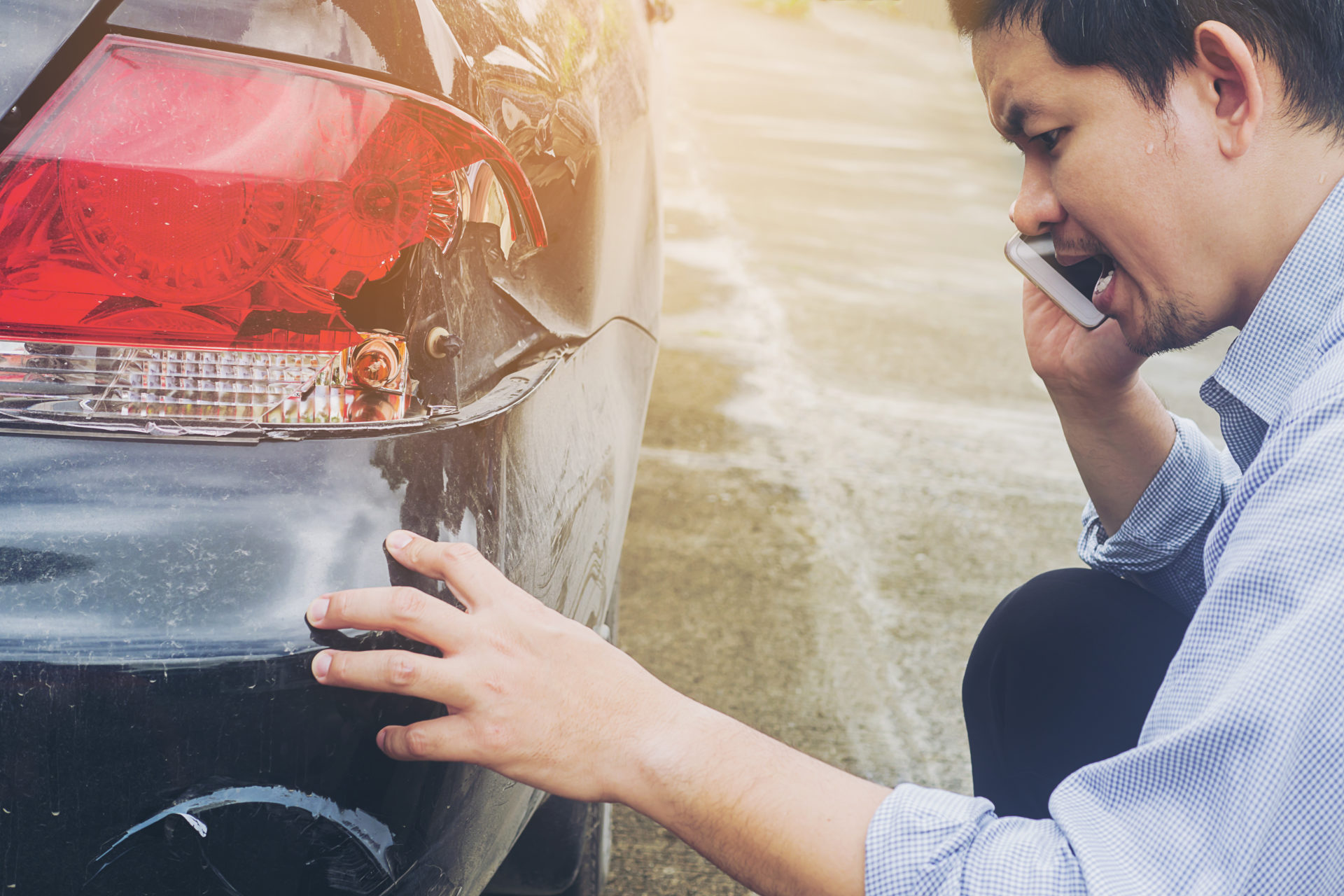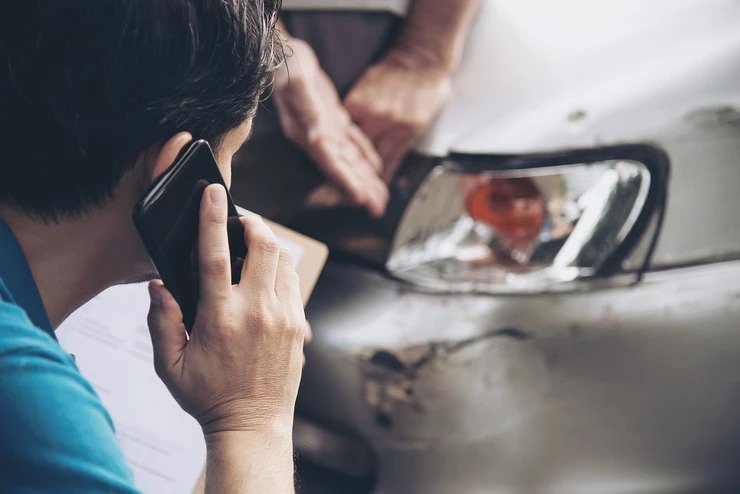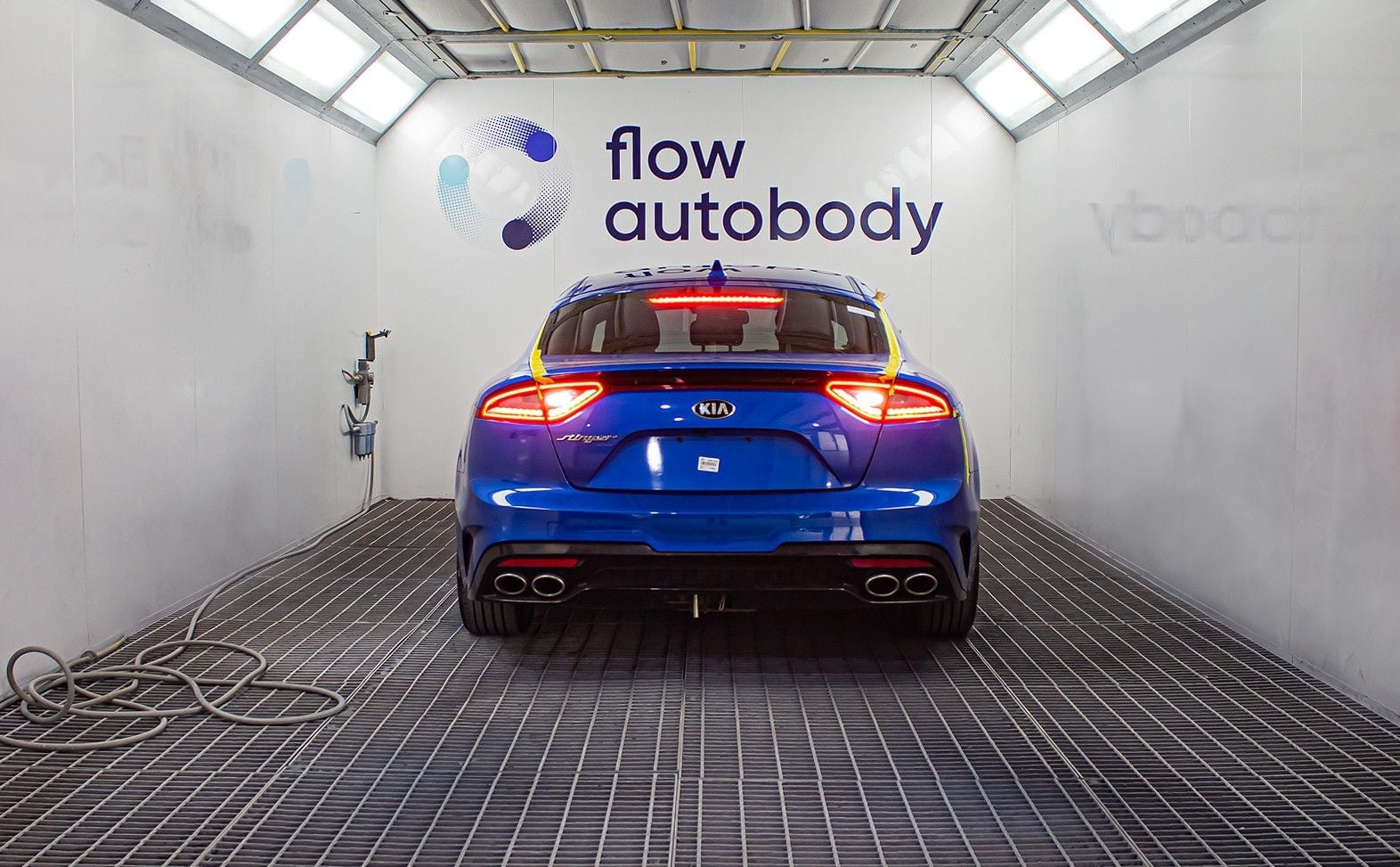
“I got into an accident but it’s not my fault. What should I do?”
It’s important to know how to deal with accidents to avoid all the hassle down the line. It’s every driver’s worst nightmare- getting into a crash that they had no fault in. The burden of having your car repaired is on you, even though you weren’t at fault. Good thing there are a few things you can do to ensure a smooth experience with your insurance claims. Read about the difference between choice of repairer and preferred repairer here to know if you have the option to get smash repair with Flow Autobody!

If the accident caused severe injuries, call emergency services immediately. Otherwise, you can follow this simple guide on the steps to take:
If the accident was minor, the first thing you should do is to get the information you would need when you file for insurance claims. Take the name, address, and the make and model of the vehicle. If possible, take the insurance details and vehicle registration number, too. Your insurance company can help establish the at-fault party liable for the accident.
If they hit you and leave the scene of collision, try to get as much information as you can from the vehicle, such as registration plate. Get details of any witnesses at the scene that can help you with your case once you have lodged your claim.
Even when you don’t see or feel any evident injuries, you should get yourself checked out by a medical professional. The most common are back injuries and seatbelt bruising. The accident could have also caused you psychological distress and trauma, so it’s really better to get checked out after the incident.
If the driver is not cooperative, you should call the police. Just make a simple but detailed report that the insurance company can use to determine your eligibility for claims. If the police can’t come to the scene of the accident, drop by the police station on the same day to file the report. It has to go on record for your insurance claims.
Coming to an agreement with the other driver can save the both of you all the hassle of having to file a police report and dealing with the process.
The protocols for an after-accident report to insurance companies differ, so it’s best to get in touch with them as soon as possible. If your car was totaled or badly damaged, your insurer can help arrange for a tow truck service. You will be informed of the procedures on filing your claims. Speaking with them to narrate the incident will also help avoid any missed details, as this will be thoroughly investigated by the company.
Being involved in a road accident, it’s not always evident who the at-fault driver is. In some situations, the liability is shared equally. For example, two moving vehicles in a parking lot that collide into each other have no liability to each other. In any accident, the insurance company will determine fault. They will rely on police reports, evidence, and narratives from both drivers to piece together what caused the collision. If they conclude you had no fault in the incident, it’s possible that you get your vehicle repaired without having to pay a single dollar. You can also consider getting in touch with Accident Management companies and professional repairers for expert advice on filing for your claims. Read more about the most frequently asked car insurance questions.
Determining who caused the accident is key, because that obligates the at-fault party to cover the repair costs. Your insurer can pursue and recover the cost of auto body repairs on your behalf from the at-fault party.
Generally, there’s an excess that policy owners pay as their contribution for any claims they make. Aside from the fixed cost, there could also be additional expenses such as:
These excess costs can be charged two ways: either through added expense after an accident, or added cost to your insurance premiums. It depends on the contract that you have with your insurance company.
It’s pretty straightforward to determine who’s at fault in some accidents, such as rear-end collisions. For other accidents, it may not be as apparent and will be subject to investigation. Just because you’re convinced “it’s not my fault”, doesn’t mean it’s true, because in some instances more than one driver is at fault. If the insurer deems you liable for the accident, too, then you can’t claim a no-fault.
And even if you are not at fault, but the accident was inevitable, the at-fault driver may not be held liable for the incident. An example would be an emergency medical situation that caused the other driver to lose control of the vehicle, such as a stroke or heart attack.
In case the other party disputes your no-fault claim, your insurance company will usually help you resolve it. The chances of the dispute going to court are small, but you might need to testify in court in the unlikely event it escalates.
It depends on the situation. You can forego reporting it to the police if the other driver is cooperative. You and the other driver can come to an agreement that you shouldn’t involve your insurance companies anymore. This will be beneficial in case the damage is small, and the insurance excess is more expensive than the expected cost of repairs. You will still need to pay the basic excess even though the cost is cheaper, so it won’t make sense to involve your insurance company if that’s the case.
For accidents that caused significant damage to your car, you should definitely report it to the police and to your insurance company. Even if the driver at-fault doesn’t have insurance, your insurer can take measures to recover the costs from them, so you won’t need to shell out any money.

It’s important that you have the option of ‘Choice of repairer‘ in your insurance policy so you can choose trusted shops like Flow Autobody. The biggest challenge after an accident is getting your car fixed. It’s a necessity that you can’t overlook, for your own safety. Getting your vehicle checked after a collision will help identify all damages incurred, both in the interior and exterior.
We service smash repairs for both private and insurance-covered cases. Whether you need minor repairs or specialized repairs, we are always ready to offer the most suitable solutions for your needs. When we see a car in need of repairs, we see a driver in need of help. We don’t only make cars pretty, we also ensure they are safe enough for you to drive them on the roads again.
If you want a repairer that genuinely cares about the driver behind the wheel, choose Flow Autobody. We always work on a job with the intention of getting you back on the road safely. Get a FREE estimate or get in touch with us to know more about our services.
Hot Reads